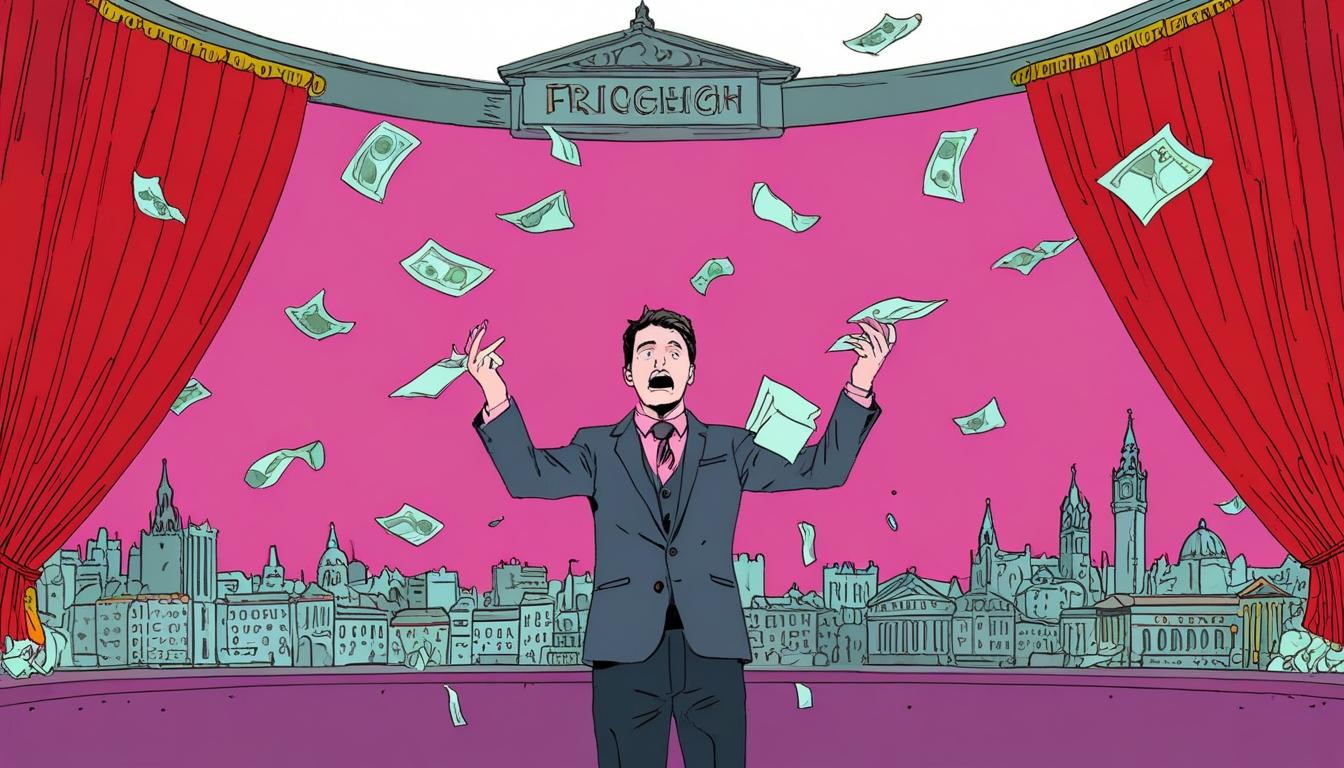Comedian Matt Forde has highlighted the financial challenges faced by performers at the Edinburgh Festival Fringe, warning that the cost of participation is making comedy increasingly elitist in the UK. Speaking at a Commons select committee on the live comedy sector, Forde, 42, the former presenter of the political satire programme Unspun, argued that the so-called “Edinburgh model” is creating significant barriers for working-class comedians seeking to build successful careers.
Forde detailed how, over time, the economics of gigging have become less favourable. “A lot of comedy clubs, the money has gone backwards since when I first started gigging. The money has got worse,” he said. He further explained that performers now face higher costs but receive less financial reward for their efforts. Until recently, he noted, the main path to comedic success was through a strong showing at the Edinburgh Festival, a global arts showcase that provides crucial exposure.
However, Forde stressed that the substantial costs associated with performing at the Fringe, especially accommodation expenses, have become a major obstacle. “The single biggest cost is accommodation. The single biggest barrier to be able to perform, and indeed visit the Edinburgh Festival, is the exorbitant rents that landlords charge,” he said, adding that these costs rise year upon year. This situation not only affects comedians but also audience members who visit the festival, forcing them to pay inflated prices.
According to Forde, such financial demands mean comedy is increasingly accessible only to those with privileged backgrounds. “The only people who can afford to do hours of unpaid work in the hopes that comedy will become a full-time job are privileged people. And then the only people that can afford to perform at Edinburgh, and indeed visit Edinburgh, are privileged people,” he told MPs.
This raises concerns about the diminishing diversity within the comedy scene, particularly in terms of socioeconomic background. Last year, former BBC presenter Gail Porter expressed similar sentiments, revealing that she had been “priced out” of attending the festival due to soaring accommodation costs.
Forde also criticised the lack of governmental recognition and support for these challenges, which he considers part of the problem facing aspiring comedians from less privileged backgrounds.
Beyond the issues at Edinburgh, Forde discussed the arrival of a British version of the long-running American sketch comedy show Saturday Night Live (SNL) on Sky, created by Lorne Michaels. Forde described this development as positive, saying, “I think we need more topical comedy on telly. We need more sketch on telly.” He noted Edinburgh’s reputation as a breeding ground for various comedy talents, including sketch performers, which is a distinct skill set from individual stand-up comedy. However, he tempered expectations, stating that “SNL in itself isn’t going to dramatically change the culture here.”
The Edinburgh Festival Fringe has played a pivotal role in launching many successful careers. For example, Phoebe Waller-Bridge premiered her acclaimed play Fleabag at the festival, and Richard Gadd performed Baby Reindeer there before it was adapted into a Netflix series.
The evidence session featuring Forde was part of the Culture, Media and Sport Committee’s State Of Play inquiry, which seeks input from people across the UK’s creative industries. This inquiry aims to examine various challenges and opportunities within live comedy and the broader cultural sector. The committee plans to hold further hearings to gather a broad range of perspectives.
Source: Noah Wire Services
